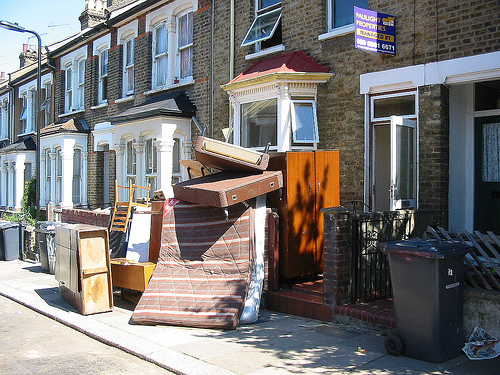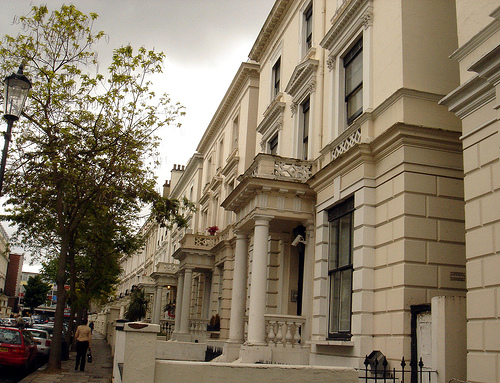153: How to lower your investment risk in uncertain times
08-25-2007
PropertyInvesting.net team
The fall-out from the sub-prime lending crisis continues. The world financial markets have had to adjust to increased pricing of risk –stock markets rebounded on 24th August, but its possible worse is around the corner. This turbulence means lending criteria are being tightened and borrowers with poor credit histories  are likely to fail to get further lending. There is not likely to be much impact on investors and borrowers with good credit rating though, as long as the situation does not deteriorate significantly from now. All the uncertainty around how many banks have got how much bad debit from the rolling up of these sub-prime mortgages is a key issue – it’s likely to emerge over the next few months. Everyone is hoping it’s not massive, but it could be – some banks could fold because of the sub-prime crisis. However, although in the last week financial markets have stabilized, it’s difficult predict which way they will go moving forwards and how this might affect the global economy and property prices.
are likely to fail to get further lending. There is not likely to be much impact on investors and borrowers with good credit rating though, as long as the situation does not deteriorate significantly from now. All the uncertainty around how many banks have got how much bad debit from the rolling up of these sub-prime mortgages is a key issue – it’s likely to emerge over the next few months. Everyone is hoping it’s not massive, but it could be – some banks could fold because of the sub-prime crisis. However, although in the last week financial markets have stabilized, it’s difficult predict which way they will go moving forwards and how this might affect the global economy and property prices.
So how can you protect yourself in this uncertain market?
Cash is King: Make sure you have enough liquidity – cash – the lifeblood of business. Do not get left short of cash. If you think you can easily secure another loan if you run short of cash, you might get a very unpleasant surprise assuming past lending practices - and be left scrambling for funds. If the situation deteriorates significantly, borrowing may tighten so much that it affects the average investor.
Where are we in the interest rate cycle? When there is the most negative sentiment in the market and people feel the least confident, this is normally the best time to buy property. You will get the best deals – have the most distressed sellers wanting you to help them out. It’s possible we are at this stage now – and things will improve. But our feeling is – best to hold off and watch the market very closely. If things deteriorate, you need cash ready for the best acquisitions in the down market. In the
 When in an annual cycle to buy? We believe the best time to buy is in early December – before Christmas. It’s dark, depressing, many people are busy working hard, also going to Christmas parties, doing Christmas shopping and people don’t like moving in January to March (too cold and wet). Sellers always like to have an offer accepted before Christmas, so they can relax and enjoy themselves with their family and friends – rather than worrying about the housing market. So if you get an offer accepted in early December, one can often get 10% off the purchase price. It’s also just before the annual bonus money hits the property market from January to April each year. If you get a bonus yourself, make sure you have your offer in by early December – you’ll only need to exchange in about 2-3 months time by which time your bonus money should have arrived. This timing is certainly good for all major northern hemisphere cities with financial centres – like
When in an annual cycle to buy? We believe the best time to buy is in early December – before Christmas. It’s dark, depressing, many people are busy working hard, also going to Christmas parties, doing Christmas shopping and people don’t like moving in January to March (too cold and wet). Sellers always like to have an offer accepted before Christmas, so they can relax and enjoy themselves with their family and friends – rather than worrying about the housing market. So if you get an offer accepted in early December, one can often get 10% off the purchase price. It’s also just before the annual bonus money hits the property market from January to April each year. If you get a bonus yourself, make sure you have your offer in by early December – you’ll only need to exchange in about 2-3 months time by which time your bonus money should have arrived. This timing is certainly good for all major northern hemisphere cities with financial centres – like
 Where do I buy to lower risk? In risk periods where the economy takes a tumble, it’s best to invest in areas which you believe will be the last areas to be hit by a recession. In the
Where do I buy to lower risk? In risk periods where the economy takes a tumble, it’s best to invest in areas which you believe will be the last areas to be hit by a recession. In the
What to buy to lower your risk? The best way to lower the risk in property investment is to purchase a property at below market value which has a positive cashflow – it “washes it’s face”. If you believe a property’s true market value is £200,000, you should always aim to get at least 15% below market value – hence £170,000. You may see value in a property that someone else has not spotted (e.g. large garden with good access, giving a potential building plot, or a low cost way of refurbishing the property to add significant value – loft conversion, simple re-decoration, car port). Unless you buy below market value you will always be significantly risking your money. If you can purchase, update, then re-mortgage (further advance) and get your deposit/money bac k within 4 months of purchase – this will lower your risk even further. You get your money “off the table”. You still have a large debit, but unless the house prices drop significantly and/or there is deflation, then you’ll probably be okay. There are never any guarantees – you will always have to take some sort of risk, but you need to minimize this as much as possible. If you have 20 properties, all with this low risk approach, then you will be feeling pretty comfortable your net worth will be growing year on year – and you should be able to have enough cash in reserve to get you through any hard times. These could be just around the corner, so never get arrogant – never assume there cannot be large jobs losses, house prices falling and lower tenant demand in future.
k within 4 months of purchase – this will lower your risk even further. You get your money “off the table”. You still have a large debit, but unless the house prices drop significantly and/or there is deflation, then you’ll probably be okay. There are never any guarantees – you will always have to take some sort of risk, but you need to minimize this as much as possible. If you have 20 properties, all with this low risk approach, then you will be feeling pretty comfortable your net worth will be growing year on year – and you should be able to have enough cash in reserve to get you through any hard times. These could be just around the corner, so never get arrogant – never assume there cannot be large jobs losses, house prices falling and lower tenant demand in future.
Trends to reduce your risk? There are a general worldwide trends in most countries towards reducing numbers of people per household. More households are being created and in many countries, the global population is expanding, but in almost all countries, the size of households is decreasing. These means in developed countries you cannot go far wrong by purchasing a spacious one bedroom flat in a good location at a very good price. If you purchase a used property (not new build) you will also be making sure that 15-20% of your wealth does not get transferred to the property developer who is selling the new build. It’s obviously preferable for the exchange of wealth to be from the seller to you as a purchaser, if you are the purchaser. This is almost never possible with new build, but is certainly the target for re-sale purchases – you just need to purchase at well below market value to be assured of this. Criteria for purchase of a one bedroom flat could include:
- Proximity to transport (tube, rail, road)
- Proximity to large businesses – jobs
- Proximity to good schools
- Proximity to parks, shops, leisure, cafes (any tourist attractions)
- Security of property and crime level of neighbourhood
- Rental demand for the sector of the market you are choosing
- Proximity to Universities, Hospitals, Public sector jobs
- Is road and neighbourhood quiet
- What are neighbours like
- Regenerating area – positive change
- New developments and infra-structure planned or being built
Criteria for purchase of a specific one bedroom flat could be:
- Separate kitchen (yes/no)
- Separate living room (yes, no)
- Separate bedroom (yes, no)
- Separate bathroom / WC (yes, no)
- Storage space (yes, no)
- Size of rooms (double bedroom or single)
- Parking – allocated space, garage (yes, no)
- Own entrance (yes, no)
- Outside space (patio, terrace, balcony or garden)
- Level of security (1st, 2nd or 3rd floor, or secure ground)
- Basement apartment (avoid these unless very good price and no damp)
- Roof or basement space (yes, no)
- High ceilings or any original features (yes, no)
- Nice views or nice aspect (yes, no)
 For example, if a Victorian built apartment is on the 1st floor, has all separate rooms, the rooms are large, high ceilings, original features, it has a roof space (that can be converted to further accommodation within the apartment’s lease) and a nice large roof terrace – all for a very good price – this will reduce you risk if you can purchase this property at well below market value. If you find another flat without any of these benefits at the same price, you should avoid it – you’ll get far less for your money and hence increase you risk of making a loss instead of a profit.
For example, if a Victorian built apartment is on the 1st floor, has all separate rooms, the rooms are large, high ceilings, original features, it has a roof space (that can be converted to further accommodation within the apartment’s lease) and a nice large roof terrace – all for a very good price – this will reduce you risk if you can purchase this property at well below market value. If you find another flat without any of these benefits at the same price, you should avoid it – you’ll get far less for your money and hence increase you risk of making a loss instead of a profit.
So if the property market cools off or even goes into reverse, is does not mean you cannot make money. It does mean you need to be more selective and re-risk purchases as much as possible before making any commitment – we hope the above criteria are helpful to you. With the aim of course to maximize profits whilst minimizing investment risk.
And if there is a recession, don’t expect to make money from buying a large house in the

